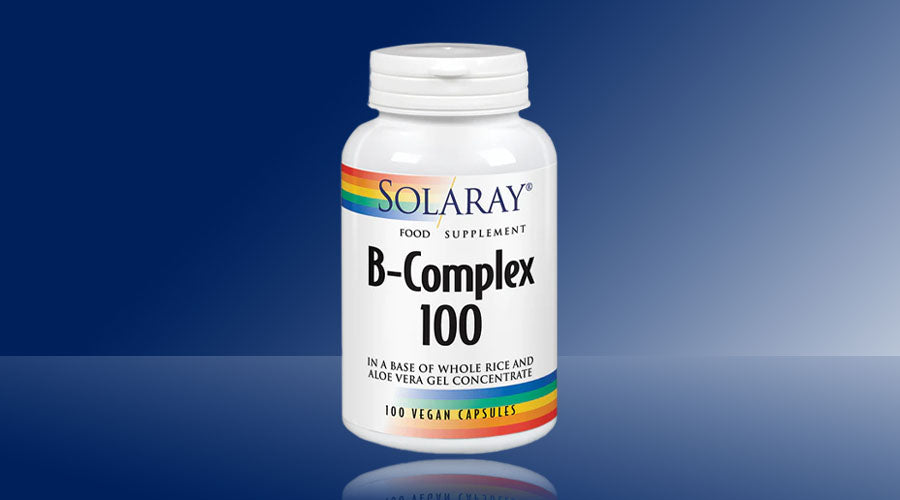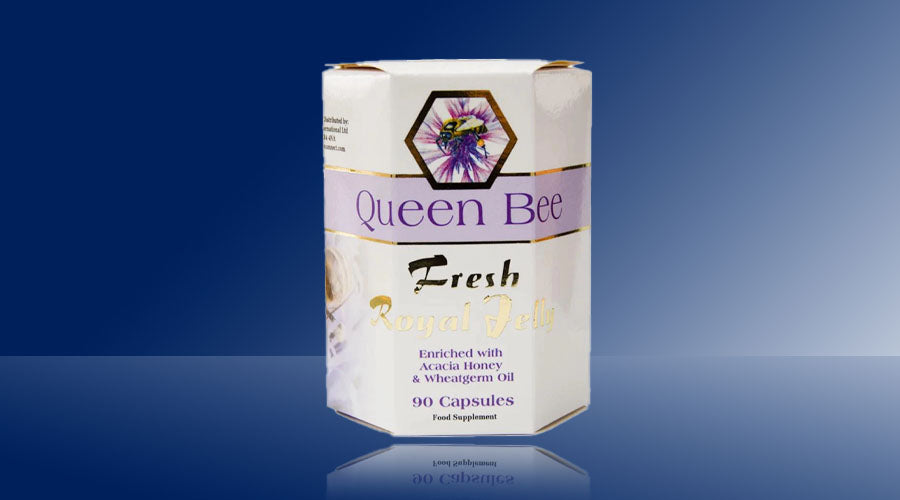-
Vitamin B
- What is Vitamin B?
- How does the body benefit from Vitamin B?
- How can I get more Vitamin B?
- Vitamin B Supplements to try
In the world of nutrition, few nutrients are as essential and versatile as the B vitamins. These water-soluble wonders play a crucial role in maintaining our overall health and well-being. Want to know about this vital nutrient? Keep reading and find out the unique types of Vitamin B and how your body can benefit from it.

What is Vitamin B?
Vitamin B is a group of water-soluble vitamins that play essential roles in various bodily functions. The B vitamins are not a single nutrient but rather a complex of several distinct vitamins, each with its own unique properties and roles in maintaining good health. These vitamins are often grouped together due to their similar functions and their presence in many of the same foods. Vitamin B complex consists of a group of eight distinct B vitamins, each with its unique set of benefits:
- B1 (Thiamine): Supports energy production, nerve function, and carbohydrate metabolism.
- B2 (Riboflavin): Essential for energy production, skin health, and antioxidant defense.
- B3 (Niacin): Aids in energy metabolism and supports proper circulation.
- B5 (Pantothenic Acid): Helps with energy metabolism and synthesizing important compounds.
- B6 (Pyridoxine): Crucial for brain development, mood regulation, and immune function.
- B7 (Biotin): Promotes healthy hair, skin, and nails.
- B9 (Folate): Important for DNA synthesis, red blood cell production, and pregnancy health.
- B12 (Cobalamin): Supports nerve function, red blood cell formation, and energy metabolism

How does the body benefit from Vitamin B?
Energy Boosting
B vitamins play a critical role in the metabolism of carbohydrates, fats, and proteins, providing you with the necessary fuel to power through your day. It boosts energy by participating in various metabolic processes within the body. These processes involve converting the nutrients from the food you consume into usable energy in the form of adenosine triphosphate (ATP), which is the primary energy currency of cells.
Supporting the Nervous System
Essential for optimal nervous system health and function, particularly B1, B6 and B12, play vital roles in supporting the nervous system. B1 aids nerve function by assisting in the synthesis of neurotransmitters. B6 contributes to neurotransmitter production and nerve signal transmission. B12 is crucial for the maintenance of nerve cells' protective coverings (myelin) and the production of healthy red blood cells that supply oxygen to nerve tissues. Vitamin B6, B9 (folate), and B12, can aid in reducing the risk of neurological issues.Promoting Skin health
Biotin is often referred to as the "beauty vitamin", contributing to the production of keratin, a protein that is a major component of skin, hair, and nails. Adequate intake supports the maintenance of youthful and glowing skin. Niacin (B3) is involved in cellular repair and metabolism, improving skin texture and appearance by promoting healthy cell turnover. It also supports the skin's natural barrier function, to help retain moisture and prevent dryness. Furthermore, B2 Riboflavin contributes to cell growth and repair, aiding the regeneration of damages skin cells. With antioxidant properties, it can also protect from oxidative stress.

Production of Red Blood Cells
Vitamin B12 and folate are essential for the production of red blood cells, helping prevent anaemia and ensuring proper oxygen transport throughout the body. They are essential for haemoglobin production, maturation of red blood cells and DNA synthesis. Folate deficiency can result in a type of anaemia known as megaloblastic anaemia. In this condition, red blood cells are larger than normal and unable to function properly. This leads to fatigue, weakness, and other symptoms associated with anaemia.
Mood Regulation
Some vitamins are linked to mood regulation, such as Vitamin B6 which is essential for the synthesis of neurotransmitters, including serotonin and dopamine which impact mood. Whilst deficiencies in vitamin B12 have been linked to mood disorders such as depression and anxiety. Vitamin B12 is involved in the proper functioning of nerve cells and maintenance of the protective covering of nerve fibres (myelin). Disruptions in nerve cell function and myelin integrity can contribute to mood disturbances.
Heart Health
B vitamins (B6, B9, B12) can support heart health by regulating homocysteine levels, reducing inflammation, and aiding blood vessel dilation. B6 helps maintain arteries, blood pressure, and clotting. B9 and B12 aid homocysteine conversion and influence cholesterol metabolism. While B vitamins contribute to cardiovascular well-being, a holistic approach involving exercise, diet, and medical guidance is essential for heart disease prevention.

How can I get more Vitamin B?
As seen, These B vitamins are essential for various bodily functions, including converting food into energy, maintaining a healthy nervous system, supporting red blood cell formation, and aiding in the synthesis of important molecules like DNA. Since B vitamins are water-soluble, they are not stored in the body for long periods, so regular intake through diet or supplementation is necessary to maintain adequate levels.
Deficiency in any of these B vitamins can lead to various health issues, ranging from fatigue and weakness to neurological problems. Therefore, it's important to ensure a balanced and varied diet to obtain all the necessary B vitamins for optimal health.
Incorporating a range of foods into your diet can ensure sufficient vitamin B intake. This includes whole grains, legumes, nuts, lean meats, and fortified cereals for B1 and B2. Opt for lean meats, fish, nuts, and seeds for B3 and poultry, fish, bananas, and beans for B6. For B9 eat leafy greens, legumes, and citrus fruits and B12 can be found in animal products like meat, fish, and dairy, while fortified plant-based foods can provide alternatives. A diverse diet embracing these sources will help you meet your vitamin B needs.
Discover some Vitamin B Complex supplements from our range and get the optimum intake to improve your health




